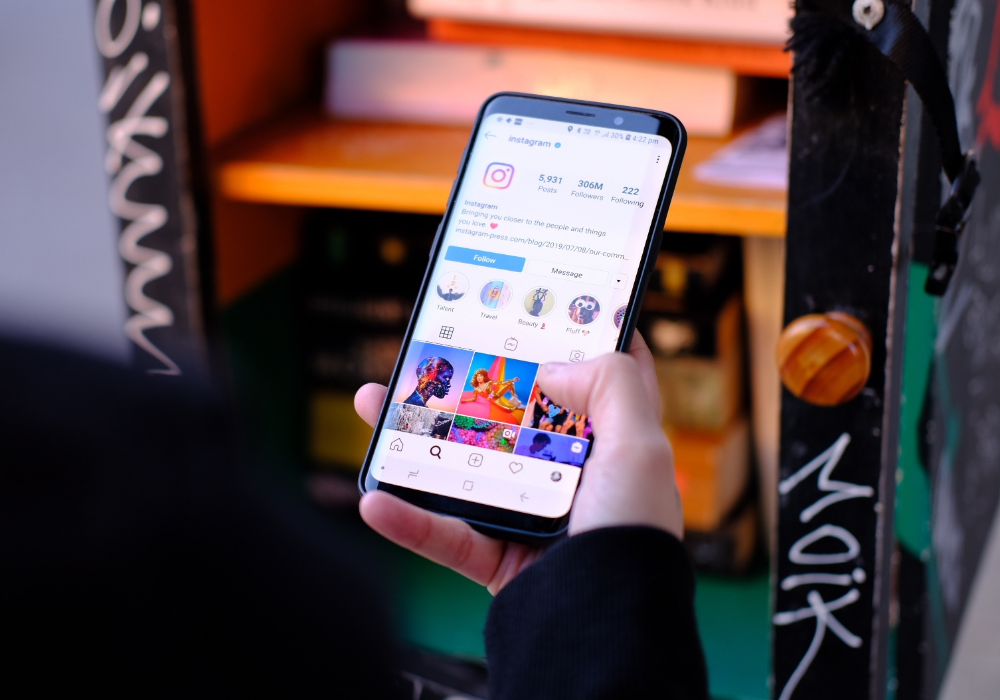Personalization sounds helpful, until it starts warping your reality.

You’re not imagining it—your online world feels eerily tailored. Every ad, every video, every suggested post feels like it knows you. That’s not by accident. Algorithms are designed to capture your attention, but they don’t stop there. They reshape how you see yourself, what you care about, and who you believe you are. It’s more than surveillance—it’s subtle self-reinvention through constant digital nudging.
What started as convenience became conditioning. You click, scroll, like, and engage, and the algorithm builds a version of “you” it thinks you’ll respond to. Then it feeds you more of that version—again and again—until other parts of you fade. Your opinions narrow, your habits shift, and your sense of self starts bending toward whatever keeps you on the platform. This isn’t just about data privacy. It’s about identity, autonomy, and the invisible ways you’re being edited in real time.
1. It reinforces your existing beliefs until they feel like facts.

Once the algorithm picks up on your preferences—political leanings, lifestyle choices, personal values—it starts feeding you more of the same. Not because it agrees with you, but because repetition keeps you engaged. You feel affirmed, validated, even righteous. And slowly, other perspectives vanish from your feed.
This creates a feedback loop that hardens opinions. You stop encountering disagreement, so your views feel obvious and uncontested. It’s not that people stopped disagreeing—it’s that the algorithm filtered them out.
Dr. Amy Ross Arguedas and her co-authors note in Reuters Institute for the Study of Journalism that algorithmic personalization tends to reinforce existing beliefs by amplifying like-minded content, ultimately narrowing user worldviews through passive exposure. What starts as personalization becomes polarization. And the scary part? It feels completely normal.
2. It shapes your aesthetic and tastes without you realizing it.

You might think your style is uniquely yours, but if you spend enough time on TikTok, Instagram, or Pinterest, trends start to feel like instincts. What you wear, how you decorate, what you find beautiful—it all gets subtly molded by what performs well in the algorithm. Certain colors, poses, and aesthetics rise to the top, and suddenly everyone’s wardrobe and living room looks eerily similar.
This isn’t coincidence. The algorithm favors what’s familiar and repeatable. So even your creative expression starts to conform. As Madeleine Schulz explains in Vogue Business, algorithm-driven content funnels personal style into a narrow aesthetic, guiding taste under the guise of inspiration. It doesn’t feel forced, but it is filtered. And while trends have always influenced style, the algorithm accelerates them so fast that your identity can shift before you even know it’s happening.
3. It flattens your personality into a brand.

Online, you’re encouraged to be consistent. Have a niche. Stick to a vibe. The more “on brand” you are, the more the algorithm favors your content. This kind of consistency can be rewarding—it brings in followers, likes, and attention. But it also boxes you in.
You stop posting what’s real and start curating what fits. Before long, you’re not just editing your feed—you’re editing yourself. Hobbies that don’t fit your niche fade out. Opinions that feel too off-brand get silenced. Ragnhild Eg and her co-authors observe in Human Behavior and Emerging Technologies that users often adapt their self-presentation to meet platform expectations, prioritizing visibility and approval over authenticity. It’s not just creators who fall into this trap. Anyone with a profile is playing the same game, even if they don’t realize it.
4. It escalates your emotions for higher engagement.

Social media platforms don’t just track your behavior—they manipulate it. Posts that spark outrage, anxiety, or awe get boosted because they generate stronger reactions. The algorithm learns which content makes you stop scrolling, and it sends more of it your way. This emotional hijacking reshapes your daily mood—and, eventually, your identity.
You might not think you’re angry until you realize you’ve been doomscrolling for an hour. You might not think you’re insecure until your feed shows you a hundred ways you’re falling behind. These emotions aren’t just side effects—they’re the product. The algorithm profits off your intensity, even when it’s draining you. Over time, your emotional baseline shifts, and with it, your sense of who you are.
5. It turns hobbies into performance metrics.

Used to enjoy drawing, reading, baking, or journaling just for the joy of it? If you’ve ever posted about it online, chances are the algorithm turned it into content. You start chasing views instead of curiosity. You feel pressure to share a polished version of your process.
Suddenly, it’s not about enjoying the thing—it’s about how well it performs. This shift changes how you relate to your own interests. You might abandon hobbies that don’t get likes or double down on ones that do. The algorithm doesn’t care what brings you joy—it cares what keeps others watching. And without realizing it, your creative life becomes a series of data points. Fun gets rebranded as productivity. Passion turns into content. And identity becomes whatever draws the most attention.
6. It nudges your political identity to extremes.

Maybe you started out center-left or center-right. Maybe you just liked a few posts about climate action or free speech. But the algorithm doesn’t do nuance. It pushes you toward more intense versions of whatever you’ve shown interest in—more radical opinions, more polarizing headlines, more “us vs. them” content designed to spark outrage or loyalty.
This isn’t a conspiracy. It’s math. Strong emotions drive more clicks, so the system dials up the heat. You don’t notice it at first, because each shift is small. But over time, your feed becomes an echo chamber of increasingly rigid narratives. The longer you stay, the deeper you sink. It doesn’t matter what side you’re on—if the algorithm can radicalize your engagement, it will. Because extremism isn’t a flaw in the system. It’s a feature.
7. It decides which parts of your identity are worth visibility.

You might post about a dozen different aspects of your life—your culture, your queerness, your hobbies, your struggles—but not all of them get traction. Maybe your travel pics do well, but your posts about chronic illness don’t. Maybe your activism gets buried, but your makeup tutorials blow up. Slowly, the algorithm teaches you what parts of yourself are “marketable.” This changes what you share—and, eventually, how you see yourself. Parts of your identity that aren’t rewarded with likes start to feel invisible or less valid.
You start curating your presence to match what gets seen, not what feels authentic. And over time, you internalize those signals. It’s not just that the algorithm picks and chooses what’s visible—it makes you do the same, turning your full, complex self into a highlight reel optimized for clicks.
8. It replaces community with parasocial validation.

You follow creators you admire. They respond to your comment once and it feels electric. You start feeling close to people you’ve never met—people who don’t know you exist beyond a username. The algorithm feeds you more content from them because it knows you’ll stay hooked. And in the process, it shifts your sense of connection from mutual relationships to one-sided admiration.
This doesn’t just impact how you relate to creators—it changes how you define intimacy. You start seeking attention over interaction. Validation becomes a numbers game: views, likes, reactions. And slowly, real connection feels less rewarding than algorithmic approval. You’re not just lonely—you’re being trained to feel connected through metrics, not mutuality. That’s not community. That’s code.
9. It commodifies your insecurities—and sells them back to you.

The algorithm watches what makes you pause: weight loss posts, beauty filters, aspirational lifestyles. It doesn’t care whether you feel better or worse afterward—only that you stayed.
The longer you linger on content that triggers your insecurities, the more it floods your feed with variations of the same theme. That emotional targeting gets monetized fast. You see ads for supplements, apps, skincare routines, workout programs—solutions to problems the algorithm helped magnify.
It’s a loop of harm and promise, problem and product. The worst part is that it works by design. You think you’re just exploring wellness or self-improvement. But you’re being softened up for a sale, over and over again.
10. It erases nuance by rewarding simple, extreme narratives.

Complexity doesn’t perform well. So the algorithm rewards hot takes, soundbites, and content that delivers instant emotional payoffs. You stop seeing full conversations and start seeing distilled versions of issues—black-and-white stories that feel good to agree with or easy to rage against.
The result? Everything becomes a take. And every take becomes a part of your identity. Even if you want to understand something deeply, your feed pushes you toward quick reactions instead. You start responding to ideas in pre-approved ways, using the same phrases and scripts you’ve seen repeated. This doesn’t just shape what you believe. It shapes how you think. Complexity gets flattened. And nuance—one of the most human qualities—gets lost in the scroll.
11. It rewrites your sense of self in subtle, lasting ways.

The version of you the algorithm reflects back isn’t neutral—it’s engineered. It nudges you toward certain habits, aesthetics, moods, even ideologies. You might still feel like yourself, but that self has been shaped by a million invisible decisions made by code. What you see, what you want, what you chase—none of it is untouched. And because these changes happen slowly, they’re hard to notice. You just wake up one day feeling disconnected from the person you used to be, unsure how you got here.
The algorithm didn’t force you to change. It just made the path to that change feel inevitable. And once you start walking it, turning back feels harder than going along. Identity isn’t fixed—but in the hands of an algorithm, it becomes a product shaped by engagement, not intention.